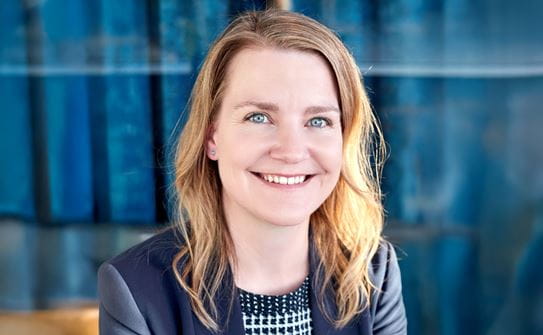Many of us turn to online resources when we have questions about cancer, but misinformation is common online and has the potential to impact our health.
2 min. read
.jpg?h=362&iar=0&mw=543&w=543&rev=af465bffb5b3442c8c655b1c8b2470d4&hash=F5736552EEA770B29B8E8D0C438C9B90)
Misinformation about what increases or decreases cancer risk is common and can include outdated or incorrect information. The sheer volume of misinformation online – from blogs to social media – can cause confusion and anxiety. But it can also be dangerous because it may influence the decisions people make about their health.
“The landscape of health information available online is constantly shifting and is subject to rampant false information that could mislead or even harm people who are trying to reduce their cancer risk or navigate the cancer care system,” explains Dr Cheryl Peters, a Canadian Cancer Society (CCS)-funded researcher.
“The landscape of health information available online is constantly shifting and is subject to rampant false information that could mislead or even harm people who are trying to reduce their cancer risk or navigate the cancer care system,” explains Dr Cheryl Peters, a Canadian Cancer Society (CCS)-funded researcher.

CCS-funded researcher Dr Cheryl Peters
Understanding how and why misinformation spreads is key to reducing it and providing people in Canada with reliable information guided by evidence. That’s why Dr Peters is leading a team to investigate how people in Canada access cancer information online.
By running focus groups and reviewing social media platforms and online stories, Dr Peters and her team are working to understand the drivers of misinformation and the challenges people face in finding accurate cancer information online.
By running focus groups and reviewing social media platforms and online stories, Dr Peters and her team are working to understand the drivers of misinformation and the challenges people face in finding accurate cancer information online.
Helping people in Canada counter cancer prevention misinformation
Ultimately, Dr Peters and her team will use their findings to develop an innovative digital strategy with resources such as videos, infographics, how-to guides and more.
This work will help people in Canada recognize misinformation and improve their health literacy. Because when people have access to trusted, reliable information to know what causes and treats cancer, and are equipped to know what doesn’t, they can make informed decisions to improve their health.
This work will help people in Canada recognize misinformation and improve their health literacy. Because when people have access to trusted, reliable information to know what causes and treats cancer, and are equipped to know what doesn’t, they can make informed decisions to improve their health.
How CCS can help
In addition to funding research projects like Dr Peters’, CCS makes accurate and trustworthy cancer prevention information accessible online 24/7.
We know that about 4 in 10 cancer cases can be prevented through healthy living and policies that protect our health. Learn simple ways to reduce your risk of cancer by:
We know that about 4 in 10 cancer cases can be prevented through healthy living and policies that protect our health. Learn simple ways to reduce your risk of cancer by:
- Making healthy choices such as living smoke free, being sun safe, limiting alcohol and eating well
- Being safe at work by knowing your risk and protecting yourself
- Knowing your environment and learning how to reduce your exposure to cancer-causing substances
- Exploring CCS prevention programs for support at home, in school or in workplaces
- Checking out It’s My Life!, an interactive, evidence informed tool that shows you simple changes you can make to improve your health
- Talking to a cancer information specialist about your cancer prevention questions
- Signing up for Voices for Change to join a network of advocates committed to preventing cancer through government action
CCS is here to help answer your questions. Call us at 1‑888‑939‑3333, or connect with us via live chat at the bottom right of your screen.
Help create a future without cancer
With support from readers like you, we can continue to make a meaningful impact for people affected by cancer.
We are determined to increase survival, stop cancer before it starts, and improve lives. But we can’t do it without you.
If everyone reading this gave just $5, we could achieve our goal this month to fund the most promising research, compassionate support and transformative advocacy. Please give today because every contribution counts. Thank you.
